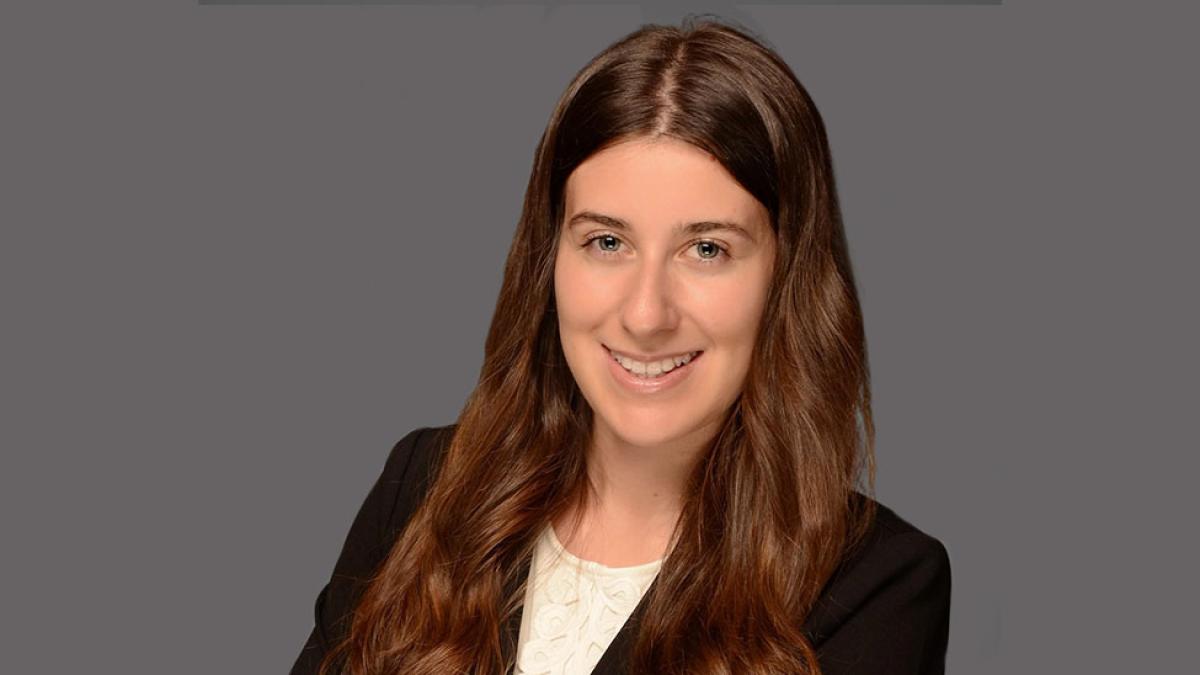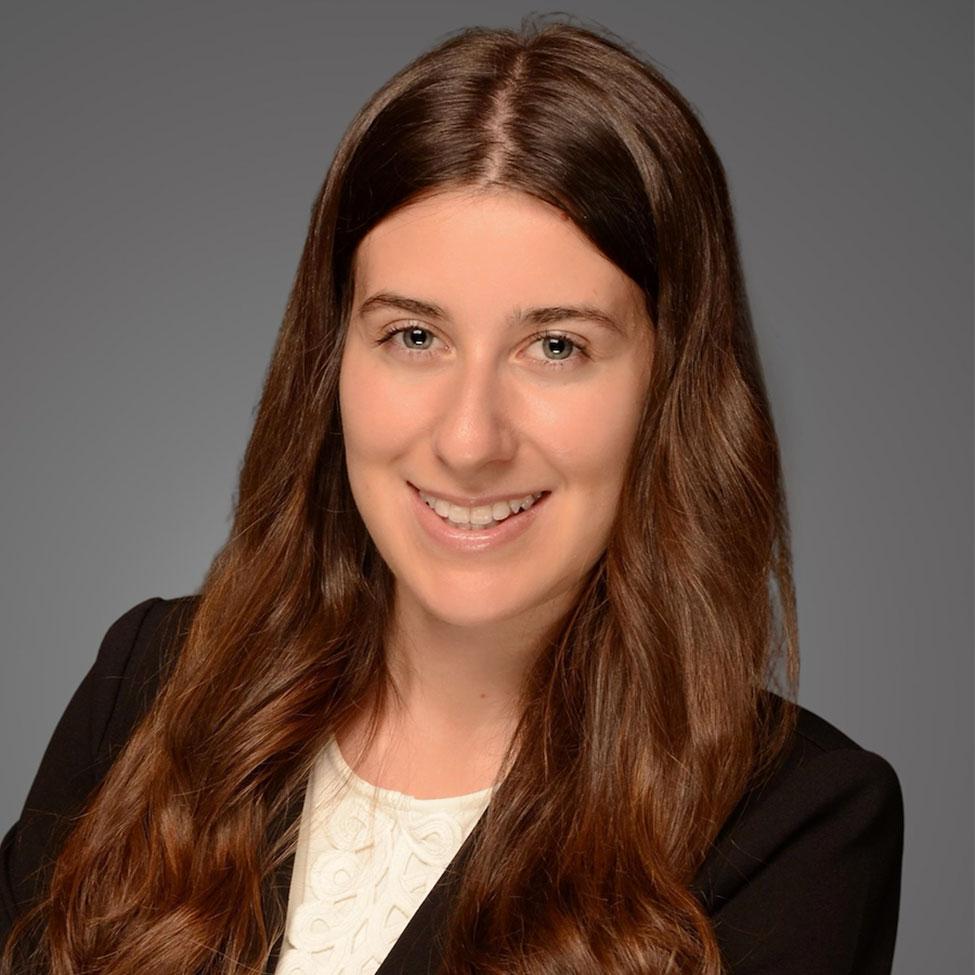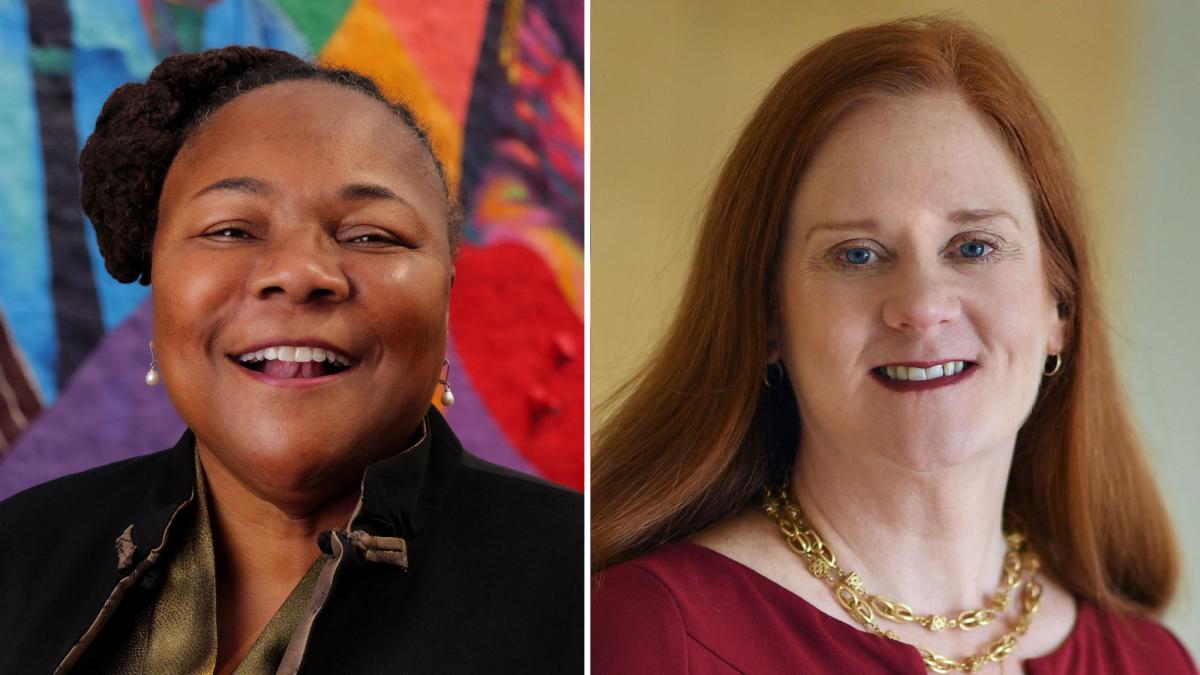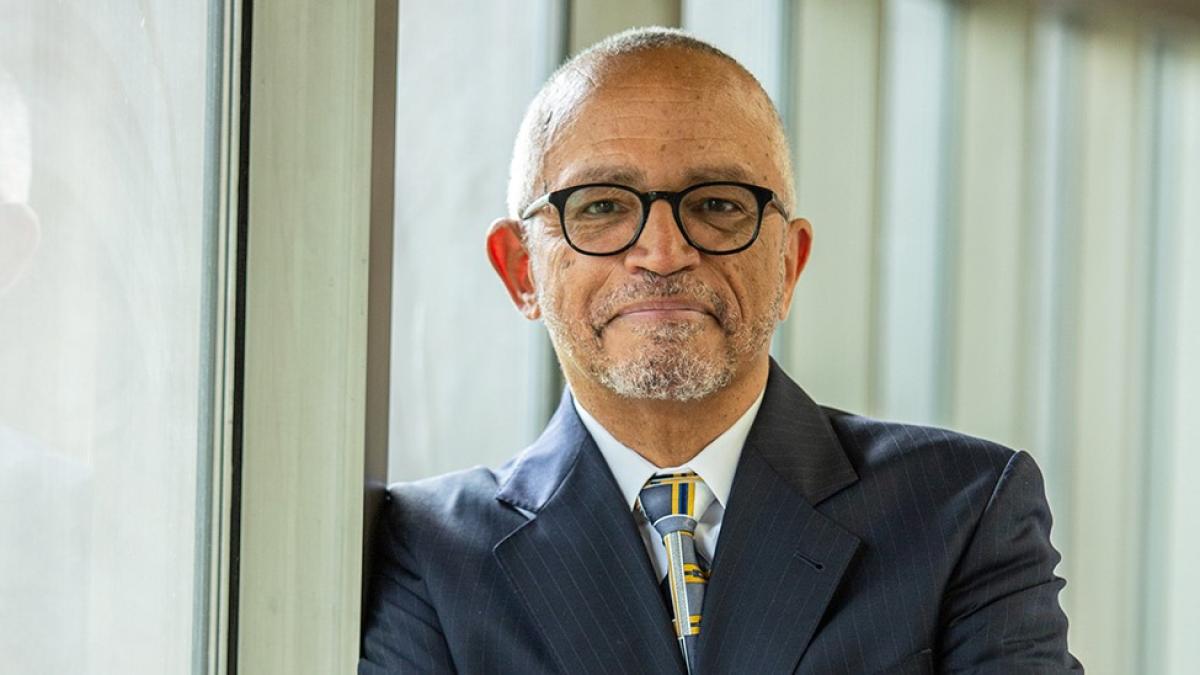
Diwali 2024 Celebration at Seidenberg
On November 1, the Seidenberg School of Computer Science and Information Systems gathered to celebrate Diwali at Pace University.


On November 1, the Seidenberg School of Computer Science and Information Systems gathered to celebrate Diwali at Pace University. Diwali, India’s biggest holiday and also known as the Festival of Lights, is a Hindu tradition that symbolizes the victory of light over darkness and good over evil, bringing a message of hope and renewal. This vibrant and cherished tradition within the Seidenberg community was held at the Design Factory space in 15 Beekman, and the event welcomed students, faculty, and staff for an evening filled with cultural experiences, laughter, and connection.
One of the standout activities of the event was an intricate rangoli showcase, for which student attendees showcased their artistic talent and cultural heritage by designing their own rangolis and putting them on display. The students who participated were rewarded with exclusive Seidenberg merch! The event guests also enjoyed an assortment of traditional Indian foods, adding authentic flavors to the festivities and enhancing the communal spirit.

This celebration is a testament to the strong bond between Seidenberg and its Indian student community. Each year, celebrating Diwali provides an opportunity for students to share their culture and traditions, fostering deeper connections and mutual appreciation within the school. Special thanks go to the dedicated Seidenberg students who made this year’s celebration a success, showcasing their creativity and organizational talent.
Celebrating the cultures of our diverse population is one of the many reasons students consider Seidenberg their home away from home. Building an inclusive environment where students feel seen, supported, and celebrated is part of our mission. These moments not only honor cultural heritage but also strengthen the school’s close-knit community, making it a true home for students from all backgrounds.
From Grit to Greatness: The Pursuit for Legal Empowerment
Growing up in a first-generation Italian household, 3L Stella Capparelli learned perseverance and grit from her parents, who immigrated from Italy. From an early age, she understood that not everyone has the opportunity to attend college or law school, and she was determined to make the most of the opportunities she had.


Growing up in a first-generation Italian household, 3L Stella Capparelli learned perseverance and grit from her parents, who immigrated from Italy. From an early age, she understood that not everyone has the opportunity to attend college or law school, and she was determined to make the most of the opportunities she had. With the educational systems in Italy and the United States being so different, Stella couldn’t rely on her parents to guide her through the college process. Instead, she took charge and forged her own path in higher education, a proactive spirit that would later inspire her to pursue a career in law. Aware of how many people are unfamiliar with their rights, Stella set out to become a source of support for those facing complex legal challenges.
As an undergraduate at Marist College, Stella’s passion for learning drove her to seek out additional classes she could take. In her senior year, she realized she had accumulated enough credits to graduate early in December instead of May. This allowed her to get a head start on her legal education, with Haub Law’s Accelerated January Degree Program at the top of her list. The program, which enables students to begin in the spring term and graduate in two and a half years, appealed to her drive for efficiency and her desire to start her legal career sooner.
Since starting at Haub Law, Stella has built an impressive list of accomplishments. She transitioned from a Residence Hall Assistant to Residence Hall Director at Dannat Hall, served as a Dean Scholar for four semesters, became involved in the Italian American Law Students Association (ITALO), and competed in two mock competitions for Pace Law’s Advocacy Program. Additionally, Stella has contributed to Haub Law’s Legal Hand Call-In Center, where she empowered local community members by connecting them with resources to resolve legal issues. “It’s incredibly rewarding to provide someone with the guidance and tools they need,” she says.
In true Stella fashion, Stella was selected for Haub Law’s John Jay Legal Services Pro Bono Scholars Program. This program allows students to devote their final semester to pro bono work while also taking the New York bar exam in February, opening the door for her to begin practicing law right after graduation.
Most recently, Stella secured a coveted internship at the U.S. District Court for the Southern District of New York, working under Judge Philip M. Halpern, a distinguished Haub Law Alumnus. “It’s been a once-in-a-lifetime experience, reinforcing my desire to continue working in the legal field,” she shares. “I’ve been able to participate in research, observe court proceedings, and even help draft legal documents.”
Stella attributes much of her success to the encouragement and support she has received from her parents and family. When challenges turn tougher than expected, Stella’s mom is the first to champion her daughter not to give up and keep her eye on the prize. When asked what advice she has for aspiring law students, Stella shared, “Don’t let anything stop you. If you have a bad day, remember tomorrow is a new day. Keep a reminder of why you’re in law school written on a note and use that to stay motivated. And be sure to seize every opportunity that comes your way, while enjoying the journey.”
Black Lives Matter and #MeToo: New Book by Colorado Law Dean Lolita Buckner Inniss and Pace Haub Law Professor Bridget J. Crawford, Shapes Global Conversation on Race, Gender, Justice, and Reform
University of Colorado Law School Dean and Provost's Professor of Law Lolita Buckner Inniss, and Elisabeth Haub School of Law at Pace University Professor Bridget J. Crawford have announced the release of their new book, “Social Movements and the Law: Talking About Black Lives Matter and #MeToo.”


University of Colorado Law School Dean and Provost's Professor of Law Lolita Buckner Inniss, and Elisabeth Haub School of Law at Pace University Professor Bridget J. Crawford, announce the release of their new book, “Social Movements and the Law: Talking About Black Lives Matter and #MeToo.” In a world continuing to grapple with systemic racism and gender discrimination, Social Movements and the Law offers a timely and critical examination of the intersections between activism and legal reform across the world through analysis of two globally recognized movements: Black Lives Matter and #MeToo. Published by University of California Press, this book tackles universal themes of social justice, gender difference, and racial equity, offering comparative insights that resonate across other social justice movements and in other countries experiencing similar struggles.
Black Lives Matter and #MeToo are two of the most prominent 21st century social movements in the United States. On the ground and on social media, more people have taken an active stance in support of either or both movements than almost any others in the country's history. Social Movements and the Law brings together the voices of 12 scholars and public intellectuals to explore how Black Lives Matter and #MeToo unfolded—separately and together—and how they enrich, inform, and complicate each other.
“The law is not static; it evolves in response to the demands of people who refuse to be silenced. By exploring the legal impact of Black Lives Matter and #MeToo, we aim to show how grassroots activism can drive transformative legal reforms and expand our vision for a just society.”
As Dean Inniss explains, “Social movements like Black Lives Matter and #MeToo are more than moments in history; they are calls to rethink the relationship between law, justice, and social change. This book seeks to illuminate how these movements, separately and together, challenge and reshape legal systems, sparking dialogue that transcend traditional approaches.”
Professor Crawford adds, “The law is not static; it evolves in response to the demands of people who refuse to be silenced. By exploring the legal impact of Black Lives Matter and #MeToo, we aim to show how grassroots activism can drive transformative legal reforms and expand our vision for a just society.”
With its engaging dialogue format, Social Movements and the Law transforms complex legal debates into accessible, thought-provoking discussions for readers of all backgrounds. The book includes comprehensive reading lists, discussion questions, and informative text boxes and illustrations that provide additional context. This approach not only enhances the reader's experience but also makes Social Movements and the Law a valuable resource for educators, students, activists, and all those interested in the dynamic interplay between social movements and legal reforms.
The book’s content is particularly pertinent to the United States and has broad applicability in other parts of the world with active social movements and ongoing debates about social justice, such as the United Kingdom, Canada, Australia, South Africa, and the Middle East. By weaving legal insights with social commentary, the authors invite academics, activists, and policymakers to rethink the role of law in shaping these movements and promote a deeper understanding of the interconnectedness of social movements and legal systems globally.

Lolita Buckner Inniss is the 17th dean, the second woman dean, and the first Black dean of the University of Colorado Law School, where she is also Provost's Professor of Law and an affiliate of the Center for African & African American Studies. As Dean she has worked to broaden access and equity for students, has filled vital teaching needs by hiring one of the most accomplished and largest cohorts of faculty in the history of Colorado Law, and has shepherded one of the largest clinical gifts in the history of the school. She received her A.B. from Princeton University, her J.D. from UCLA, and earned an LL.M. with Distinction and a Ph.D. in law from Osgoode Hall Law School, York University, in Canada. Her current areas of research are legal history and property law. A highly regarded leader and scholar with a prominent national and international voice in her fields, Inniss is an elected member of the American Law Institute, Chair of the Association of American Law Schools (AALS) Women in Legal Education section, a member of the Law School Admissions Council (LSAC) board of directors and an advisor to the LSAC Investment Committee, as well as a member of the AALS Deans' Steering Committee. She is the author of many articles and essays, and of the prize-winning legal history book The Princeton Fugitive Slave: The Trials of James Collins Johnson (Fordham University Press, 2020).
Bridget J. Crawford is a graduate of Yale College (BA), the University of Pennsylvania School of Law (JD), and Griffith University (PhD) in Brisbane, Australia. Prior to joining the Haub Law faculty, Professor Crawford practiced law at Milbank Tweed Hadley & McCloy LLP in New York (now Milbank LLP). At Haub Law, she teaches Federal Income Taxation; Wills, Trusts and Estates; and Feminist Legal Theory. In 2021, she was appointed as a Distinguished Professor by Pace University, the highest honor the University can bestow upon a faculty member. Crawford’s published work includes several casebooks, books, and more than 100 scholarly articles and essays. Crawford is one of 26 law professors profiled in the book by Michael Hunter Schwartz et al., What the Best Law Teachers Do, published by Harvard University Press. She has been honored multiple times by graduating students at Haub Law as Outstanding Professor of the Year. She also is a prior recipient of Haub Law’s Faculty Award for Excellence in Teaching, the Goettel Prize for faculty scholarship, and the Ottinger Prize for Faculty Achievement. She is prolific author of numerous books, articles and essays, especially on gender and the law themes, including most recently Hot Flash: How Understanding Menopause Can Improve Life and Law for Everyone co-authored with Emily Gold Waldman and Naomi R. Cahn, andMenstruation Matters: Challenging the Law’s Silence on Periods co-authored with Emily Gold Waldman.
Other contributors to Social Movements and the Law are:
- Mehrsa Baradaran, Professor of Law, UC Irvine School of Law
- Noa Ben-Asher, Professor of Law, St. John’s University School of Law
- I. Bennett Capers, Associate Dean for Research, Stanley D. and Nikki Waxberg Chair, Professor of Law, and Director, Center on Race, Law, and Justice, Fordham Law
- Linda Sheryl Greene, 1855 Professor and MSU Foundation Professor of Law, Michigan State University College of Law
- Aya Gruber, Harold Medill Heimbaugh Professor of Law, University of Southern California Gould School of Law
- Osamudia James, Henry P. Brandis Distinguished Professor of Law, University of North Carolina School of Law
- Keisha Lindsay, Professor, Departments of Gender and Women's Studies & Political Science, University of Wisconsin-Madison
- Lua Kamál Yuille, Professor of Law and Business; Associate Dean for Research and Interdisciplinary Education, Northeastern University School of Law
- Ruthann Robson, Professor of Law & University Distinguished Professor, City University of New York School of Law
- Kathryn M. Stanchi, E.L. Cord Professor of Law, University of Nevada Las Vegas William S. Boyd School of Law
How Trump Goes to Prison If He Loses the Election to Harris
Elisabeth Haub School of Law Professor Bennett Gershman speaks to New York Magazine Intelligencer about the legal implications of a potential win or loss for former President Donald Trump in the 2024 election.
Shawn Mendes Says He's 'Figuring Out' His Sexuality. Here's Why His Comments Matter.
- Read more about Shawn Mendes Says He's 'Figuring Out' His Sexuality. Here's Why His Comments Matter.
Dyson Professor Williams speaks with USA Today about singer Shawn Mendes’ recent comments on exploring his sexuality, addressing the impact of his openness on public discourse.
A Spoiler Candidate, Centrist Bona Fides, And No Bull Rides: Suburban New York Race Could Decide House Control
Dyson Political Science Professor Laura Tamman provides expert insight to the National Journal regarding New York’s 17th Congressional District race, which has a national spotlight on it.
The Trump And Harris Economic Plans ‘Are Closer Than People Imagine,’ According To Some Experts
Economics Professor Mark Weinstock was featured on AP News, offering analysis on the economic plans of Vice President Kamala Harris and former President Donald Trump, highlighting their similarities and differences.

What Happens To Trump's Criminal Cases If He Wins The Election -- Or Loses?
Elisabeth Haub School of Law Professor Bennett Gershman speaks to ABC News about the legal implications of a potential win or loss for former President Donald Trump in the 2024 election.
Prop 1 in NY Defined: Each Side's Case On Abortion, LGBTQ And Other Rights
Professor Randy McLaughlin and Adjunct Professor Debra Cohen were featured in a LoHud article explaining Proposition 1, also known as the Equal Rights Amendment (ERA), a constitutional amendment on the November 2024 ballot.

How NYC Is Using Ancient Soil For A Healthier City
Professor Perl Egendorf provides environmental insight to Science Line on how New York City is using ancient soil for a healthier city.